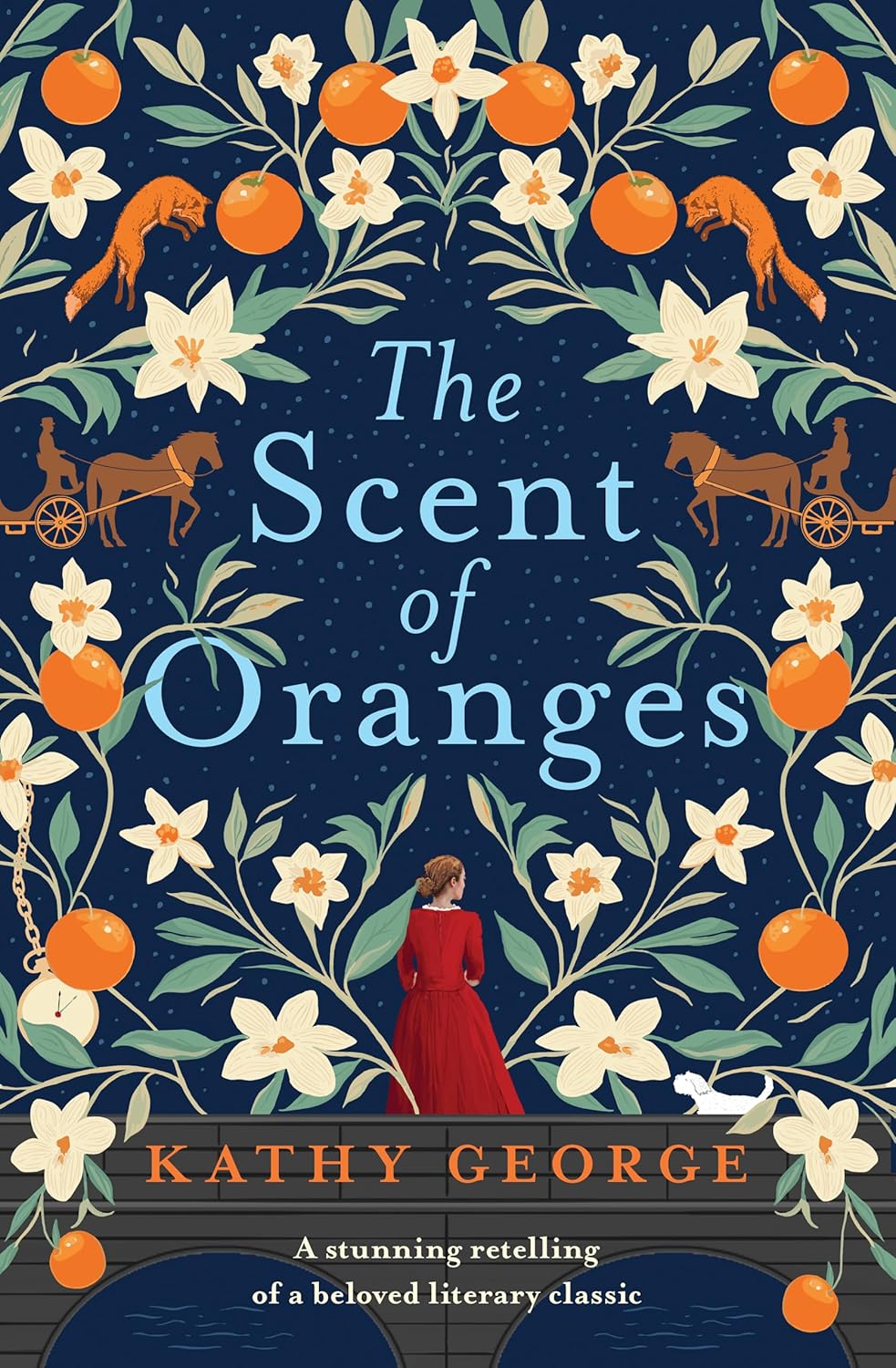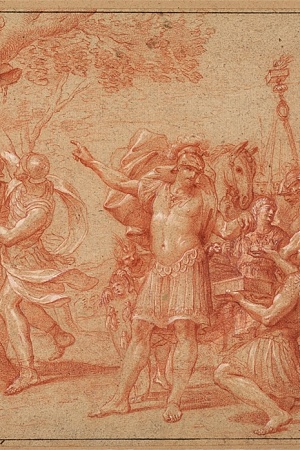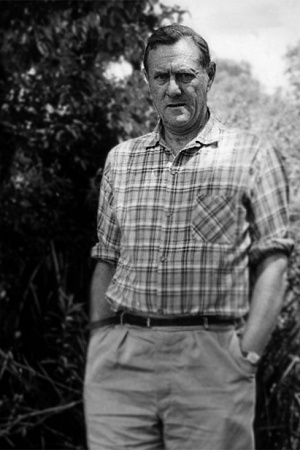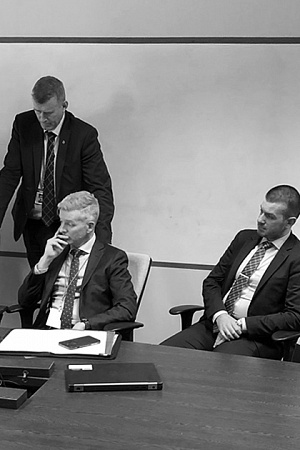Hostages to Fortune: Parents and Children
Once an angry man dragged his father through his own orchard. ‘Stop!’ cried the groaning old man at last. ‘Stop! I did not drag my father beyond this tree.’
Gertrude Stein
At first, you find the claim that you resemble your parents implausible. Later, you find it unflattering. But there are moments when you glimpse someone in a mirror and only belatedly recognise yourself. These are the moments when you realise – it is in equal parts chastening and reassuring – that if you are moving through time as an image of your parents’ past, their image is waiting for you in mirrors: they are the ghosts that haunt your future, as it were.
All the measures show we are an ageing population. It is an odd term; you might have thought that, outside Gulliver’s Travels, it would be hard to find a population doing anything else. It means that roughly thirteen per cent of us are over sixty-five and that by 2031 this figure will have risen to twenty-one per cent. As a consequence, the federal government is urging us to breed. Like the patriotic women of Renaissance Venice who embroidered on their nightgowns, ‘I do this not for myself but for God and my country’, it seems Australians are rising to the challenge. In the past year, the birth rate has gone up for the first time since 1994: ‘I do this not for myself but for the economy and my baby bonus.’
Perhaps Peter Costello is right to claim some credit for this small baby boom, though you might well regard the average oyster as a more effective aphrodisiac. Perhaps, as these babies move into the phases of production and consumption that some people regard as stages of life, they will carry the economic burden of the elderly on their shoulders. Still it looks as if it will be a heavy burden for their parents, in the meantime. The Australian Bureau of Statistics points out:
Australia’s changing age structure has implications both for the level of social expenditure that might be required in future, and the level of resources that might be available to fund it. For example, as the population aged 65 and over increases in size, associated social expenditures on income support, care and health services can be expected to increase. However, since the potential labour force (roughly represented by the population aged 15–64) is projected to grow at a slower rate after 2011, it may be more difficult to generate the level of resources and public support needed to maintain a large aged population with an acceptable standard of living and quality of life.
What will these demographics mean for the broad human exchange that an economy straitens into the narrow language of money? What will it mean, for instance, for the ordinary, difficult miracle of parents and children?
There is a book that has sold over a million copies in that haven for hard-working statisticians, the US: a book about parents and children called Love You Forever (2000). It starts with a mother holding her new baby in her arms and singing to him, ‘I’ll love you forever’. Every time you turn a page, you cross several years in the family’s life. The boy is destructive, then disobedient, then incomprehensible, then independent. Still, at every stage, his mother goes into his room at night to sing over him, ‘I’ll love you forever’ – until at last she is too old to sing. Then, only then, her son sings to her – but in the end it is his own daughter’s room he goes into at night to sing, ‘I’ll love you forever’.
There is, surely, something terrifying as well as triumphant in the involuntary nature of parental love this book describes. Romantic love affirms our individuality: it finds its frequently irrational rationale in the facts that are peculiar to us. In fact, if you were to make a survey of popular culture, you might conclude that we use the spectacle of romantic love to confirm the value of individualism. Parental love, on the other hand, has a genetic rationale that depends more on what we are made of than who we turn out to be. The mother and son in Love You Forever have no names because they are, supposedly, typical; because they characterise a love that is in essence typical. The son tends to his mother as she is his mother; the mother loves her son as he is her son.
This means, at the very source and perpetuity of our life, we discover ourselves in a role that has nothing to do with how we generally consider ourselves; for we prefer to be loved for the facts that are peculiar to us; it justifies our self-regard. Perhaps that is why we are more accustomed to reflect on the darker aspect of romantic love, its involvement of fantasy and despair. At its worst, romantic love finds us alone, with all the isolation, defiance, glory but at any rate, individuality, such a state implies. But if we consider the darker aspects of parental love, we find ourselves bound to a natural order: a transit route or dead end for selfish genes. This is, perhaps, more annihilating than isolation.
We have used machines to manoeuvre ourselves to the top of the food chain until it looks like ostentation on the part of a crocodile to consider us as prey, so it is not comfortable to consider our role in the mechanics – as the mechanics – of the survival of a species. But parental love brings us up against this mere fact. This natural loss of identity has its domestic corollary, as parents sacrifice themselves for their children who sacrifice themselves for their children who sacrifice themselves for their children. Or, as the New England poet Anne Stevenson puts it with characteristic wryness in her poem, ‘The Mother’:
Of course I love them, they are my children.
This is my daughter and this is my son
And this is my life that I gave them to please them.
It has never been used. Keep it safe. Pass it on.
At least, for the past four hundred years, history has passed on this idea of parents and children. For in the late 1500s, that practical and curious Frenchman Michel de Montaigne wrote an essay (he was, in fact, the father of the genre) on the affection that parents have for their children. The essay is dedicated to Madame d’Estissac because, he claims, ‘we have no example of maternal affection more outstanding – in our time’. In that regard, his essay could be read as a warning. He remarks:
If there is any true law of nature, that is to say any instinct seen to be universally and unchangeably implanted in animals and in men – which is not beyond dispute – I can say that, in my opinion, after the care that all beasts have for their own preservation – the affection which the parent feels for its progeny holds the second place. And because nature seems to have recommended this affection to us, with a view to the spread and advancement of the successive parts of this machine of hers, it is no wonder if the love of children for their parents, since it goes in reverse, is rather less great.
It is the merely natural nature of parental love that disconcerts Montaigne, the idea that it has nothing to do with recognition, with all that recognition implies of merit and reason and all that reason implies, for Montaigne, of the distinction between people and animals. He notes, ‘we are generally more moved by our children’s frolickings, games and infantile nonsense than afterwards by their mature acts. It is as if we had loved them – as monkeys, not as human beings.’
Montaigne’s argument has such currency that it is curious to imagine him writing this essay in his tower on his estate in Montaigne at a time when Copernicus’s theory counts as new philosophy. The rise of the metropolis, Darwin’s theory of evolution, the decline of religion, and the possibilities of in vitro fertilisation – how curious that Montaigne’s idea of parents and children persists, surviving such changes in our ideas of nature, law and the laws of nature.
It may be there is something intrinsic to the relationship between parents and children that makes it resist evolution. Our relationship with a parent is so absolutely personal it tends to stand for the general: we understand that a parent is as our parent was. So it passes on, generation after generation, bringing a history of other times and places into the present, like a crocodile: at once archaic and brilliantly adapted to survival. There is a striking portrait of Elizabeth I – queen of England as Montaigne was writing his essays – with her breasts on show to suggest that she is the mother of her country. In such ways, in the course of history, the state lays claim to what you might call the emotional value of parents and children and, conversely, invests the concept of parents and children with a social logic. For, as Costello’s encouragement to procreate suggests, nature and society share an interest in parents and children. This means even the words we use for parents and children are never simply private – they resonate in a larger area; they keep what you might call the idea of history, even when history has changed its ideas. (It is difficult and not obviously rewarding, for instance, to imagine Elizabeth II on a stamp in the fashion of her predecessor.)
That is to say, even in this most private sphere we encounter something so largely and persistently social it may well be – it might as well be – natural; and the love a parent feels for a child takes its force from a logic at once impersonal and possessive. Montaigne likens such love to the love a benefactor feels for the proof of his generosity and a craftsman for the proof of his skill; ‘and every workman loves his work better than his work would love him in return, if it had feeling’. Mutuality is an ideal of romantic love, but it is impossible for parents and children. For a parent’s love, wherever it may end, characteristically starts with pride in creation – an easier emotion than gratitude, as a rule, for gratitude marks our limits.
If it starts here, a parent’s love may not, for instance, end in regard for a child’s mature independence. Montaigne remarks:
Many a parent is very liberal in supplying his children with toys, but becomes close-fisted – once they are of age. It really looks as if our jealousy at seeing them come out and enjoy the world when we are on the point of leaving it, makes us more sparing and niggardly towards them … But if this were something to be feared, the order of things decreeing that they cannot, in fact, be nor live except at the expense of our being and our life, we should never have allowed ourselves to be fathers.
If this idea that children consume ‘our being and our life’ is discomfiting, it is perhaps worth remarking that Montaigne is working with a sense of time we can scarcely imagine. For, Einstein and the remoter physics notwithstanding, our timetabled age of clocks and watches allows us to consider time as that abstract force that drives the hand around a watchface. Montaigne is working with a more intimate sense of time as that force of creation and destruction that the order of things makes explicit when children become parents and parents become grandparents. It is a sense of time that dates all the way back to Greek myths of the beginning of the world, of Cronos (aka Time) consuming his children till one of them rises against him, even as Cronos had risen against his own father; a sense of time that sees generations turning on each other and turning into each other in that simple and radical way that Heraclitus describes: ‘In thirty years a man may become a grandfather.’ (Working on today’s averages, we might say that in sixty-six years a woman may become a grandmother.)
Perhaps Montaigne’s warning to Madame d’Estissac may serve as a gentle caveat to the government’s confidence in generation. Certainly, in a broad economic sense, children are the necessary counterbalance to an ageing population: economists say young people create wealth whereas old people deplete it. Yet this is almost exactly contrary to how inheritance tends to work in a family. Society’s broad economic balance depends, therefore, on all the intimate, difficult arrangements parents and children make.
Imagine 2050: a country of old people and children, and between them, a taxed generation. Imagine the natural succession of generations turning into a competition for what we like to call resources: for aged care and child care, nursing homes and schools; obligations to parents and commitments to offspring. In Japan, where in 2020 a quarter of the population is likely to be over sixty-five, they are planning a robot companion for the elderly. The prospect wins support for the argument in Robert Frost’s poem ‘Provide, Provide’:
Too many fall from great and good
For you to doubt the likelihood.
Die early and avoid the fate.
Or if predestined to die late,
Make up your mind to die in state.
Make the whole stock exchange your own!
If need be occupy a throne,
Where nobody can call you crone.
Some have relied on what they knew;
Others on being simply true.
What worked for them might work for you.
No memory of having starred
Atones for later disregard,
Or keeps the end from being hard.
Better to go down dignified
With boughten friendship at your side
Than none at all. Provide, provide.
Provide! And already, in Japan, a quarter of the men over seventy-five are still working. In the main, these older men are prepared to renounce their senior positions to make way for younger generations. But if there is only a companionable robot at home, when – and why – should the older generation step aside?
`This is a question that Montaigne addresses in his essay, though his answer offers but small consolation, for he imagines the next generation waiting, pitiless and impatient: ‘If we wish to be loved by our children, if we wish to take from them all reason to desire our death – let us reasonably supply their lives with everything that is within our power.’ If this describes the danger of giving up power too late, Montaigne also suggests the danger of giving it up too early: ‘This does not mean that a man should transfer his property to his children by a bond that he can never revoke.’ Or, as it says in that great saga of a father and son, the Bible: ‘As long as thou livest and hast breath in thee, give not thyself over to any. For better it is that thy children should seek to thee, than that thou shouldst stand to their courtesy’ [Sir:33].
So here it is, the dilemma of old age: renounce authority in time or breed resentment; provide for yourself or add dependence to the humiliations that attend your last years. Montaigne remarks: ‘There are so many kinds of failings in old age, and such feebleness, and it is so open to contempt, that the best thing a man can win is the love and affection of his family; authority and fear are no longer his weapons.’ But a sudden need for love and affection does not of necessity provide the means to win love and affection. There is no reason to suppose the body’s failings will teach humility or its feebleness, patience. And so in Montaigne’s time a peasant passing over his holding to his son when his own powers failed usually took care to stipulate, in legal deed, the obligation to care for him: the number of candles to be supplied, and free access to the kitchen fire.
Shakespeare read Montaigne’s essay; it served as a prompt for his massy tragedy of parents and children, King Lear. Critics of the play most commonly criticise King Lear for giving up his authority, for sharing out his kingdom between his daughters. Certainly, as the play moves forward like a natural machine of suffering, it seems natural to long to go back to the beginning. Yet Montaigne’s essay suggests that the problem in this play is not so simply a question of policy. For a start, the policy has its admirers. Montaigne argues:
The Emperor Charles V never performed a finer action than in recognising that reason quite clearly commands us to undress when our robes grow too heavy and encumber us, and to go to bed when our legs fail us. He resigned his possessions, his greatness, and his power to his son, when he found himself failing in strength and vigour …
There is something more subtly wrong in what Lear does, some problem more intrinsic to the relationship between parents and children.
This wrong is set in play in the first scene, the scene that critics typically describe as a love-test, a contest. The Melbourne Theatre Company, for instance, paraphrased the story of King Lear in advertisements for its recent season: ‘In order to “shake all cares and business from his age”, Lear sets out to divide his estate between his three daughters, but first there is to be a contest …’ Certainly, in this first scene, King Lear claims to be running a contest, announcing he will allocate his kingdom to his daughters according to the measure of love they state for him. But this is not, in fact, what he does; and in this discrepancy, Shakespeare finds a dramatic form for that blind force in the love between parents and children. For, as Barbara Everett remarks in her essay, ‘King Lear: Loving’, Lear has already apportioned his kingdom. In the first lines of the play two courtiers, Kent and Gloucester, reveal that the king has allocated equal shares to his two sons-in-law:
Kent. I thought the King had more affected the Duke of Albany than Cornwall.
Gloucester. It did always seem so to us; but now in the division of the kingdom, it appears not which of the Dukes he values most …
That means the contest that follows is mere show, a public play that Lear stages; and the only role he gives Cordelia is to speak according to the measure of land – the quantity of love – that is left over for her. It is a role that unmakes her, that makes her nothing but his most loved daughter.
In Leir, the old play that Shakespeare uses as a source, the king in this first scene seeks his daughters’ promise that they will marry a suitor of his choosing. Shakespeare changes this so that the two eldest daughters are married already. Lear is not controlling their preferences, he is demanding their recognition, their love for him as a person, not as a father. With this change, Shakespeare sets at the heart of the play a conflict between the merely natural love ‘the parent feels for its progeny’ (as Montaigne puts it) and the kind of love that depends upon preference, the kind of love you can believe you earn. When his eldest daughters, his married daughters, state their love for him, they could be quoting from Shakespeare’s sonnets: ‘I love you more than words can wield the matter’; ‘I am alone felicitate / In your dear Highness’ love.’ Against this, Cordelia asserts the merely natural bond between parents and children: ‘You have begot me, bred me, lov’d me: I / Return those duties back as are right fit.’ This is the reasonable duty that Montaigne makes out for children; and it unmakes Lear.
It is orthodox to claim that over the course of this play Lear goes ‘from power to powerlessness, from reason to madness, and, ultimately, from blindness to insight’, as the MTC puts it. Yet ‘insight’ may suggest a way of seeing that is out of time for these characters, for the world of King Lear is the world of mere nature, of bare fact and power. It seems likely that Montaigne’s account of the natural bond between a parent and child – with its blindness and terrors – came together in Shakespeare’s mind with the story of a father and his daughters in the natural world – as Shakespeare and his audience would have seen it: the world before Christ, before history becomes allegory and things become symbols. The phrase that Lear uses when he refutes Cordelia is emphatically pre-Christian; it is the phrase that Aristotle uses to deny creation: ‘Nothing can come of nothing.’ In such a world, it is not insight that matters, so much as seeing.
The play has a weightiness, an effect of sheer mass, because the curses and metaphors that characters use tend to come true: ‘See better, Lear, and let me still remain / The true blank of thine eye,’ cries Lear’s faithful servant, Kent. ‘The true blank’ is a phrase that takes its meaning from archery, where the blank is the centre of the target. But Kent’s cry brings together those aspects of the natural that make for terror: its centrality and its blindness; so Cordelia is most loved, and least known. And though faithful Kent follows Lear, in disguise, after Lear banishes him, Lear never recognises his service. Even at the end, Lear cannot see whether Cordelia is alive or dead, though he is, at last, looking: ‘Do you see this? Look on her! Look her lips, / Look there, look there!’
These days, the state serves as a last resort for old people. Perhaps that explains why it is encouraging family values. We have the Family First party with its slogan of fake simplicity: ‘If it’s good for families, we’ll vote for it’ – as if all happy families were alike and all unhappy ones, too. Such a celebration of family values implies a certain nostalgia for those times when old people depended upon their families for refuge. But the literature from those times suggests such nostalgia is misplaced.
In Renaissance England, for instance, there was a kind of vogue for writing about parents and children. To read it is to realise how far we sentimentalise the relationship. If what happened to King Lear strikes us as implausible, it may be useful to remember the story of Sir William Allen, a mayor of London who ‘shared his estate between his three married daughters, and arranged to stay with each in turn. They resented the charge of his upkeep and said he was rude to their servants; he cursed them and died in misery.’
In plays such as King Lear, such conflict between generations serves as a testing ground for questions about nature and reason, in accordance with Montaigne’s argument that nature urges parents to care for their children but only reason urges children to return the favour. You could say this idea culminates in the play by Thomas Middleton, William Rowley and Philip Massinger, The Old Law (1616–19); a play that imagines a world where the state follows nature’s law: it kills everyone over sixty and gives power to the younger generations. In this play, children delight in getting rid of their parents, and one husband determines to falsify his wife’s birth date to get her killed off more quickly.
At the least, this might imply that it is scarcely wise – for parents, at least – to invoke the natural as a basis for family values. At the most, it might prompt you to consider other forms of perpetuity. Montaigne ends his essay with praise for creative production:
Now if we consider this simple reason for loving our children, that we have begotten them, and therefore call them our other selves, there seems to me to be a very different kind of production coming from us which is no less worthy of consideration. For what we engender from the soul, the offspring of our mind, our heart, and our talents, springs from parts nobler than the corporeal, and more truly our own And I do not know whether I would not much rather have produced a perfectly formed child by intercourse with the Muses than by intercourse with my wife.
And Francis Bacon takes up this point in his essay, ‘Parents and Children’. He argues:
The perpetuity by generation is common to beasts; but memory, merit, and noble works are proper to men: and surely a man shall see the noblest works and foundations have proceeded from childless men; which have sought to express the images of their minds, where those of their bodies have failed.
In his essay ‘Of Marriage and Single Life’, too, Bacon complains: ‘He that hath wife and children, hath given hostages to fortune; for they are impediments to great enterprises.’
And Bacon was, after all, a practical man: when his enemies accused him of taking bribes as Lord Chancellor, he explained that he took them from both sides, and never allowed them to influence his decisions.










Leave a comment
If you are an ABR subscriber, you will need to sign in to post a comment.
If you have forgotten your sign in details, or if you receive an error message when trying to submit your comment, please email your comment (and the name of the article to which it relates) to ABR Comments. We will review your comment and, subject to approval, we will post it under your name.
Please note that all comments must be approved by ABR and comply with our Terms & Conditions.